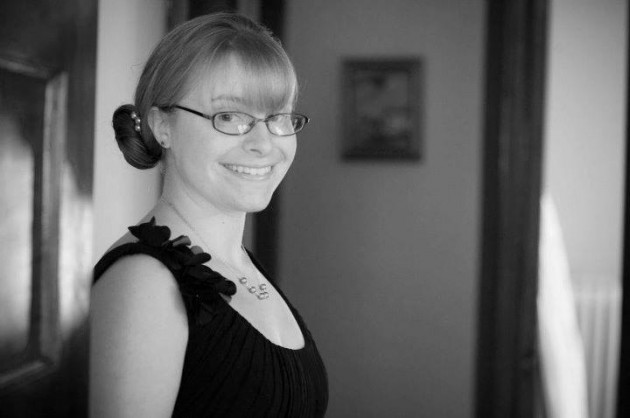Castleton rallies for higher education
Nestled in our tiny state of Vermont are five colleges dubbed the Vermont State College system made up of the Community College of Vermont, Johnson State, Lyndon State, Vermont Technical College and Castleton State.
Though these schools are considered public institutions, the amount of state funding allocated to the VSC system has decreased so much in recent years that some question whether they should still be called state colleges.
“When I came here, state funding made up 20 percent of tuition costs,” said Castleton President David Wolk at a campus rally last week seeking more state support. That was in 2001. “For the first time, we have reached single digits,” Wolk said.
Castleton State College now receives only 9 percent from the state.
Students around the state have had enough and on Thursday afternoon, each of the four colleges held rallies on their campuses calling upon the state to make a change and make higher education more affordable and more available for them and for generations to come.
Castleton senior, Nicole Mastropasqua is a student and mother of two who said she was at Castleton’s rally not only for her and her fellow students, but for her sons as well.
“I am afraid that in the future, higher education will only be for the more affluent,” she said.
On Castleton’s campus, students, faculty and staff gathered outside the Jeffords Center toting signs expressing their desire for an affordable education in the state of Vermont. Students stood on benches and courtyard walls beaconing to passersby:
“Our cause is your cause!” They cried. “Enough is enough!”
Ashley Bride is also both a student and a mother. She decided to go back to school to better her own life and the life of her son. She also works two jobs just so that she can achieve her goal of graduating in May 2012.
“I have come across many parents who have put their dreams on hold because of the financial burden,” said Bride. “And it saddens me to know that there will be more after me.”
Victoria Phillips said she feels like just another number to the state and expressed her distress over sending her loan payments out of state now because VSAC could not help her.
Castelton student Roy Fedders talked about the burdens of balancing dreams with financial reality.
“I would like to have a job that I can help someone,” he said. “I would also like to be financially secure.”
However, the financial security he dreams of may take several years to attain even after graduation.
“When I leave here, I will be $60,000 in debt. That’s not a great way to start out,” he said.
And with demands for education beyond a bachelor’s degree becoming more common in today’s job market, students are spending even more money. Without state funding, that money is coming directly out of their pockets.
“After grad school,” Fedders continued, “I will be $120,000 in debt. The state should be able to help us out.”
Though education is a nationwide issue, no other state even remotely compares to Vermont. In 1980, state appropriations were at 49 percent, making student tuition and fees 51 percent. As of the projected 2012 year, state appropriations have decreased to a mere 18.7 percent, leaving students to carry a heavy, heavy burden of 81.3 percent in tuition and fees.
Vermont ranks last among the states in aid allocated to public institutions of higher education, more than doubling the national average of 40.3 percent.
Linda Olson, president of the Vermont State College Faculty Federation and Castleton sociology professor, said this is an ongoing, uphill battle.
“We’ve been losing state support since 1980,” said Olson, “and its students who are paying the price. Both literally and figuratively.”
Olson stressed that this was just the first step in the fight for higher education. Currently, the state legislature is in recess, but will resume in January. Olson says that by grabbing their attention now, tuition costs will be on the forefront come the first of the year.
“We want them to know this is a real issue,” said Olson. She encouraged students at the rally to speak with local representatives and senators, plead their cases and share their stories, take a more personal approach.
Dean Joe Mark agreed with Olson.
“Let me ask you a question,” he said to the crowd. “What are the names of your senators?” A very quiet group listened intently to Mark who expressed how crucial it was to get in touch with the people who can make change happen. “What’s going to make a difference is talking to them,” he said.
Students in attendance realize this not an issue that will be settled over night and they are prepared to fight for what they believe is rightfully theirs. President Wolk read a letter from Castleton’s Student Government Association president, Stephanie Terry, who could not be in attendance. To conclude her letter, Terry wrote what the group was trying to express through their own words and actions: “We want higher education to be our right, not our privilege.”







